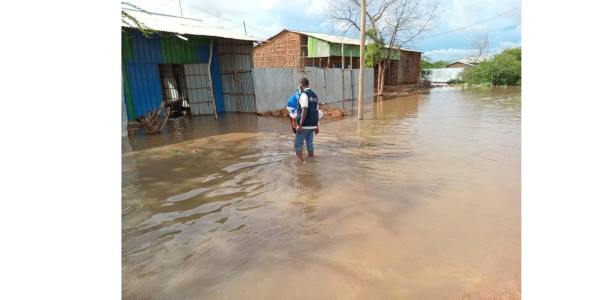The World Health Organization (WHO) raises concerns about Ethiopia's escalating public health needs. According to the Humanitarian Response Plan 2023, 17.4 million people across the country are affected by a prolonged El Niño-induced drought, floods, and conflicts, with the Somali, Afar, Oromia, Central Ethiopia, South Ethiopia, and Southwest areas experiencing the most significant impact. The dire circumstances have triggered a surge in disease outbreaks, including cholera, malaria, measles, and dengue fever, along with alarming levels of acute malnutrition.
The displacement of millions of people has disrupted essential health and nutrition services, which the compounding factors of conflict, insecurity, and movement restrictions have exacerbated. The drought's impact in Amhara and Tigray is particularly concerning, with over 5 million people affected by drought-like conditions leading to public health emergencies, escalating risks of negative coping strategies, malnutrition, and zoonotic outbreaks.
Over 1.5 million people in Ethiopia have been affected by heavy rains, floods, and landslides, according to a report from the UN Office for the Coordination of Humanitarian Affairs (OCHA). The flooding of the Omo River in the South Omo Zone has led to the displacement of nearly 94,000 people. The Somali region has been hit particularly hard, with over 1.1 million people affected by flooding, resulting in loss of lives and damage to infrastructure, including health facilities and irrigation farms. Livelihoods have been severely impacted, with thousands of livestock lost, leading to malnutrition and negative coping strategies. The regions of Oromia and Afar have also experienced flooding, with thousands of people displaced. The government and partner response capacities have been limited.
Dr Nonhlanhla Dlamini, WHO Representative a.i. in Ethiopia, stressed the urgent need for collaboration between WHO, partners, and the government to address Ethiopia's public health needs, namely the disease outbreaks, malnutrition, water scarcity, poor sanitation, noting that the floods hamper health response activities.
WHO actively supports the regional Health Cluster, Nutrition Cluster and Drought Incident Management System by deploying Mobile Health Teams (MHTs), prepositioning and distributing emergency medical supplies, and providing technical support. Despite these efforts, health response to the multiple emergencies still needs more funding. There is still a gap of USD 56 million despite ongoing resource mobilization efforts. It is crucial to ensure that targeted people are reached, and with the above background, WHO appeals to the international community to urgently support Ethiopia to address the ongoing public health needs and alleviate the suffering of millions of people.
Distributed by APO Group on behalf of World Health Organization (WHO) - Ethiopia.
Latest Stories
-
Fuel shortage hits Sissala East and West Districts
7 minutes -
President Mahama orders immediate probe into 2020 and 2024 election fatalities
11 minutes -
Ken Thompson applauds John Mahama’s initial ministerial appointments
19 minutes -
Shatana drops new single “Monicitamol” to inspire women
31 minutes -
Mahama calls on party supporters, and others fomenting trouble to act responsibly
32 minutes -
We’ll have 2 holidays for Eid al-Fitr celebrations this year – Mahama
38 minutes -
Effiduasi market women hit streets in demand for access to stalls after paying contractor
59 minutes -
GNAT urges gov’t to prioritise education sector challenges just as it’s tackling energy issues
1 hour -
Free SHS can’t continue; parents must pay for feeding, accommodation – NAGRAT President
1 hour -
Mahama demands update from IGP on election-related deaths in 2020, 2024
1 hour -
It’s a boy! Moses Bliss and wife welcome first child
1 hour -
Motorists stranded as fuel shortage hits Damongo
1 hour -
Fuel shortage hits Yendi and Damongo, residents appeal for swift intervention
2 hours -
Prof Bokpin endorses Finance minister-designate’s push for additional IMF funding
2 hours -
Sammy Crabbe criticises NPP leadership for party’s defeat; eyes chairmanship in 2026
2 hours

